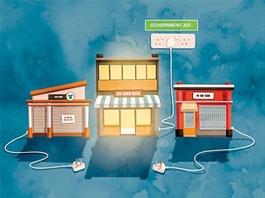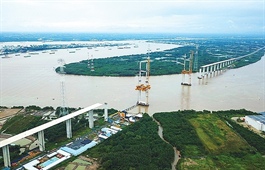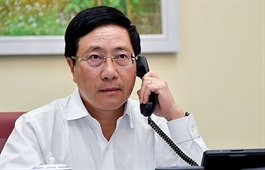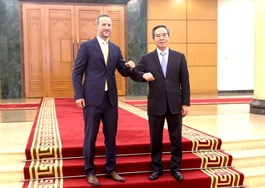Prospects glowing for India-Vietnam trade
Prospects glowing for India-Vietnam trade
Despite the fact that global supply chains are being reshaped by the pandemic, Indian businesses are expanding their investment and business operations in Vietnam as they see big opportunities in many sectors.
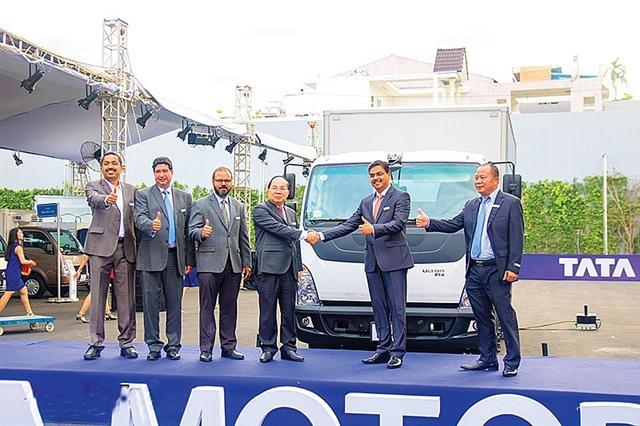
In the 2019-2020 period, bilateral trade between Vietnam and India reached over $12.3 billion, photo Le Toan
|
In July, major Indian IT provider HCL Technologies begun operations in Vietnam. A representative explained that the company is implementing a major investment plan worth hundreds of millions of US dollars and may employ 8,000 people in the upcoming fiscal year, especially in the software and service sectors.
The Indian company is mulling over developing one of its largest hubs in Southeast Asia in Vietnam as the country offers a “friendly business environment and a rapidly developing IT and physical infrastructure,” the representative said.
Similarly, NTPC Ltd., India’s leading power utility company, expressed its willingness to develop projects with Vietnamese partners. The company’s current operating capacity is greater than 65,000MW, including 50,000MW from coal and about 4,000MW in renewable energies.
Meanwhile, Essar, one of India’s leading privately-owned conglomerates, is exploring in Vietnam an opportunity to build an integrated $8 billion power centre, including a gas-fired power plant, transformer stations, and transmission facilities.
Speaking at last week’s online India-Vietnam Business Forum, Riva Ganguly Das, Secretary (East) under India’s Ministry of External Affairs, said that Vietnam is emerging as an important pillar in India’s Act East policy as well as a very valuable component of its Indo-Pacific Ocean initiative. With stable politics and a young and dynamic population, as well as a GDP growth rate at 6.5-7 per cent in the last few years, many Indian investors see Vietnam as a prominent destination.
India currently is the fifth-largest economy in the world. With a strong and growing middle class of more than 400 million, an affordable but highly-skilled labour force, and a convenient business climate, India has become one of the most attractive destinations for foreign investments. Thus, Das urged Vietnamese companies to also explore such prospects in India.
The COVID-19 crisis has disrupted the global economy and India and Vietnam are no exceptions. The latter quickly managed the infections through strong and early measures, while in India, cases are currently on a downward trend. The crisis has led to a realignment of interests in trade and business between the countries.
Commenting on the potential partnership between Indian and Vietnamese investors, Pranay Verma, Ambassador of India to Vietnam, said, “While India has invested about $1 billion in Vietnam, India has received around $28 million worth of foreign investment from Vietnam in sectors like pharmaceuticals, construction, and communication. As both countries have complementary economies, there is more space for entrepreneurs on both sides to promote trade and investment.”
Ambassador Verma also noted that there are many potential areas for Indian companies to enter and invest in Vietnam, such as IT, automotive, textiles, infrastructure, and many more. Likewise, Vietnamese companies can find areas such as food processing, construction, and manufacturing attractive for investments in India.
Standard Chartered Bank’s latest Standard Chartered Trade Opportunity Report also revealed that Vietnamese businesses could increase exports to India by $633 million annually. Meanwhile, Indian exporters could boost trade with Vietnam by an estimated $475 million, raising the bilateral trade volume to $1.1 billion.
India is now one of Vietnam’s top 10 trading partners and Vietnam ranks as India’s fourth-largest ASEAN trading partner. With the ongoing shifts in supply chains, the trade route between both nations could become increasingly important for international businesses.
“Vietnamese and Indian efforts to grow mutual trade have clearly been working, with bilateral trade growing at the steepest rate ever recorded,” said Nirukt Sapru, Standard Chartered’s CEO for Vietnam, ASEAN, and South Asia’s cluster markets. “As Vietnam now plays an increasingly important role in global supply chains, its relationship with India is likely to strengthen further. As our study shows, India presents many opportunities for Vietnamese companies seeking new and fruitful avenues for growth, and vice versa.”




